| |||||
| |||||
|

44 episodes
Building the Future: Freedom, Prosperity, and Foreign Policy with Dan RundeCenter for Strategic and International Studies
- Government
4.2, 11 Ratings
- Campaign Finance: Does Money Matter?Campaign Finance: Does Money Matter?In this episode, Dan is joined by Brian Chatwin, president of Right Country Lists, to discuss how financial factors can drive political campaign structures. They examine advertising methods, the weaponization of donor transparency, and how privacy laws affect international election processes. Their conversation then shifts to a discussion about whether there is genuinely too much money in politics and the importance of an open and fair election process.
- Unlocking Africa's Innovation AgendaUnlocking Africa's Innovation AgendaIn this episode, Dan is joined by Patrick Awuah, the founder and president of Ashesi University in Ghana. Dan and Patrick discuss Patrick’s recently published chapter in a book entitled Practicing Development: Upending Assumptions for Positive Change. They also discuss Africa’s youth employment challenge, how education and economic development are complementary, and the changing attitudes around the role of higher education institutions in international development. Patrick describes how Ashesi University has a unique higher education model and is an incubator for African youth entrepreneurship. Additionally, they analyze domestic resource mobilization and democracy trends in sub-Saharan Africa, and the new African free trade agreement.
- How the U.S. Should Respond to China's StrengthHow the U.S. Should Respond to China's StrengthIn this episode, Dan is joined by Dr. Jonathan Ward, author of China’s Vision of Victory, to discuss China’s ambitions for the world and how the United States should respond. Jonathan explains that in order to continue leading a free world, the United States must focus on the source of China’s strength: its economic might. His recommendations include the United States more effectively trading with its allies, integrating its allies in Europe and in Japan, and ramping up funding for research and development.
- Leveraging Change in UN OrganizationsLeveraging Change in UN OrganizationsIn this episode, Dan is joined by Catherine Bertini, former executive director of the World Food Programme, as they discuss Catherine’s recent report for the Chicago Council on Global Affairs entitled, “Leading Change in UN Organizations.” The conversation is focused broadly on what it means to lead a UN organization. They discuss Catherine’s recommendations for reforms within the UN system, specifically targeted to incoming heads of UN agencies to maximize success in the first one hundred days in their roles. Additionally, they discuss Catherine’s distinguished career and her important work on improving gender parity within UN agencies.
- Infrastructure Development in "God's Own Country" KeralaInfrastructure Development in "God's Own Country" KeralaIn this episode, Dan is joined by Rick Rossow, CSIS Wadhwani Chair in U.S.-India Policy Studies, as they host two senior bureaucrats from the Indian state of Kerala, Tom Jose and Sanjeev Kaushik. They all discuss how Kerala is becoming a force to be reckoned with and how infrastructure development can take them to the next level. Additionally, they explain why transportation, water, and solid waste management are of high priority for the state; and the role of various development partners in financing Kerala's infrastructure plans.
- DDR Explained: Disarmament, Demobilization, and Reintegration in AfghanistanDDR Explained: Disarmament, Demobilization, and Reintegration in Afgh…In this episode, Dan sits down with Dean Piedmont, Senior Advisor for Disarmament, Demobilization, and Reintegration (DDR) at Creative Associates, where Mr. Piedmont leads the charge in implementing DDR programs in various countries. Dan and Mr. Piedmont discuss the trends, challenges, and successes of past DDR programs, and how they can be redesigned for integration into Afghanistan. Their conversation touches on the critical role of stakeholders and builds a potential strategy for an Afghanistan program.
Customer Reviews
Ccatarinasantos,
Great Podcast!
A very insightful and entertaining series of podcasts! It's a must for everyone interested in foreign affairs.
mohamed alsafi18,
Great speakers VERY BAD host
The host has to ask and shut up
snc009,
Good content, but stop talking over guests
The content and guests are fantastic, but the presenter often talks over guests (often women), which is really uncomfortable and makes the podcast painful to listen to.
Top Podcasts In Government
See AllListeners Also Subscribed To
See All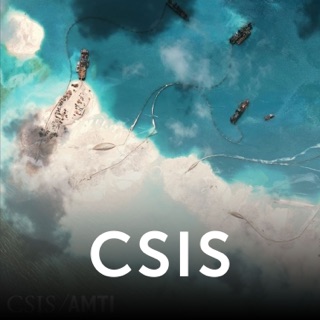
The Asia Maritime Transparency Initiative
CSIS | Center for Strategic and International Studies

Curated Conversations
CSIS | Center for Strategic and International Studies

Religion and Foreign Policy
Council on Foreign Relations

On Violent Extremism
CSIS | Center for Strategic and International Studies

Energy 360°
CSIS | Center for Strategic and International Studies

The Trade Guys
CSIS | Center for Strategic and International Studies
More by Center for Strategic and International Studies
See All
The Truth of the Matter
CSIS | Center for Strategic and International Studies

Bob Schieffer's "About the News" with H. Andrew Schwartz
CSIS | Center for Strategic and International Studies

Defense and Security - Audio
Center for Strategic and International Studies

Cybersecurity and Technology - Audio
Center for Strategic and International Studies

Russian Roulette
CSIS | Center for Strategic and International Studies

The Kremlin Playbook
CSIS | Center for Strategic and Internati




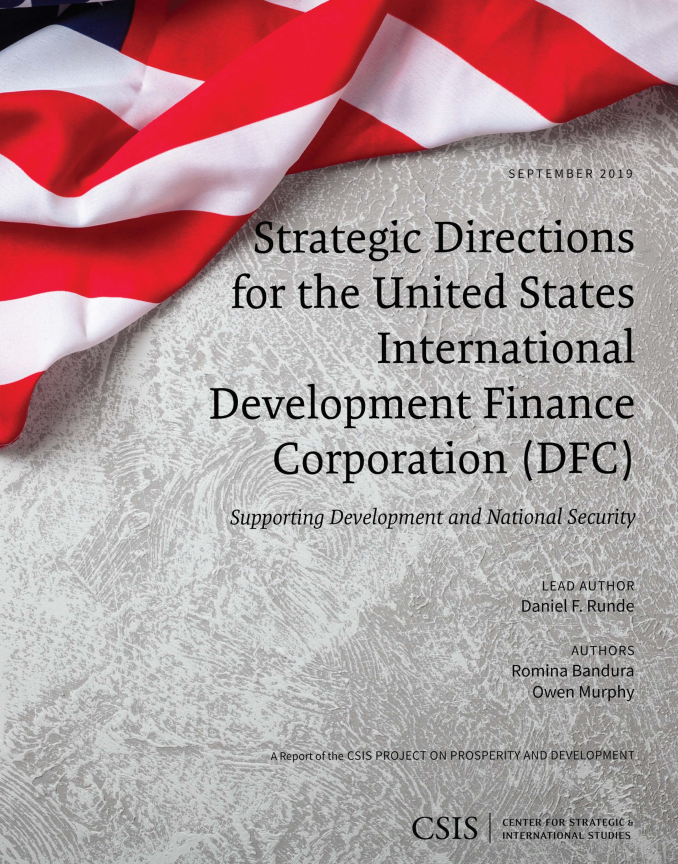 In September 2019, ahead of the BUILD Act's one-year anniversary, CSIS released a new report on “
In September 2019, ahead of the BUILD Act's one-year anniversary, CSIS released a new report on “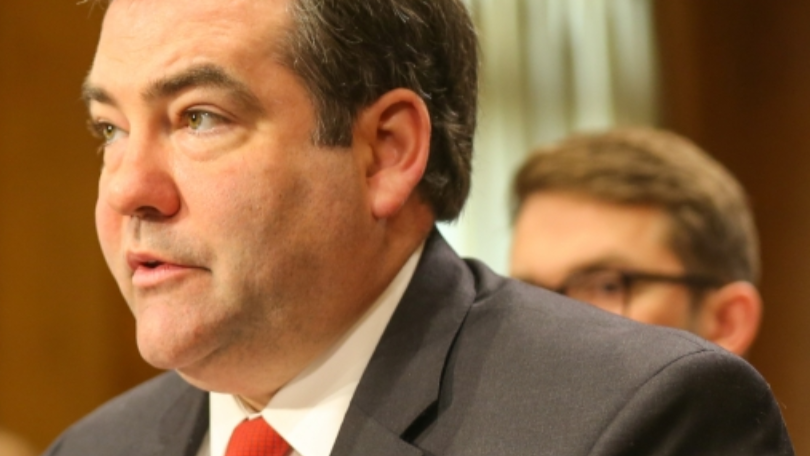 On November 15, 2017, CSIS Senior Vice President Daniel F. Runde, testified before the House Foreign Affairs Subcommittee on Asia and the Pacific on "
On November 15, 2017, CSIS Senior Vice President Daniel F. Runde, testified before the House Foreign Affairs Subcommittee on Asia and the Pacific on "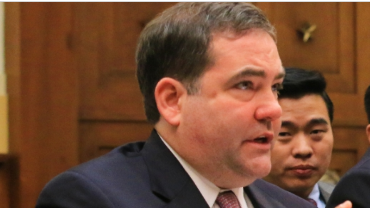 testified before the Senate Committee on Foreign Relations on “
testified before the Senate Committee on Foreign Relations on “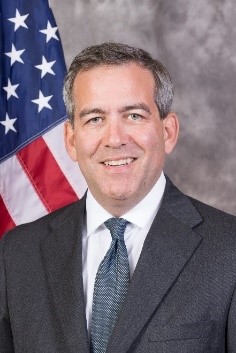
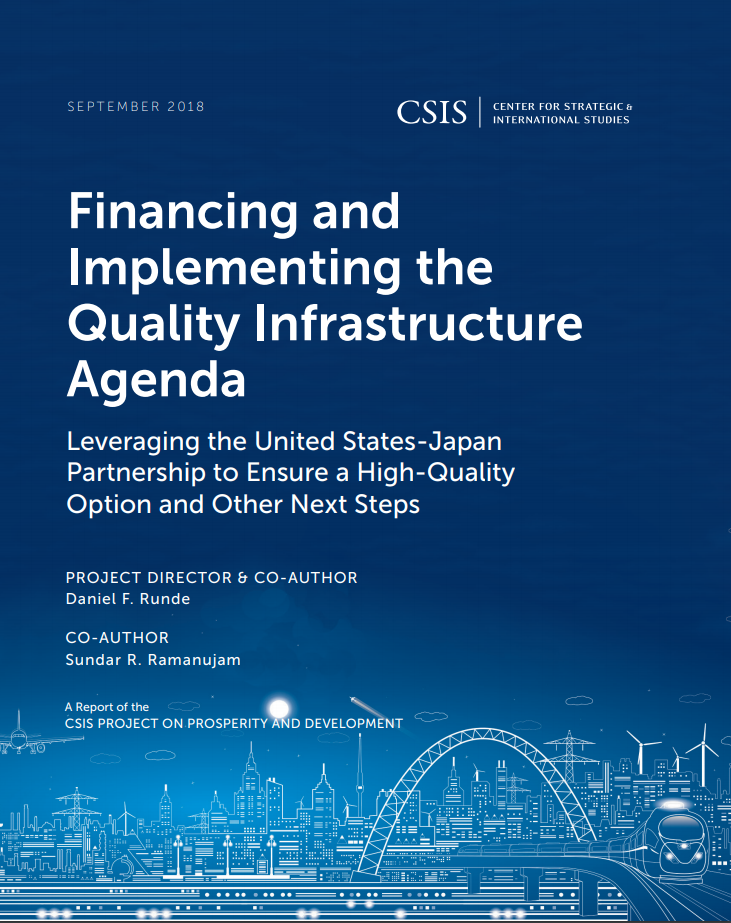 Partnering with the Ministry of Foreign Affairs of Japan, CSIS released a report titled “
Partnering with the Ministry of Foreign Affairs of Japan, CSIS released a report titled “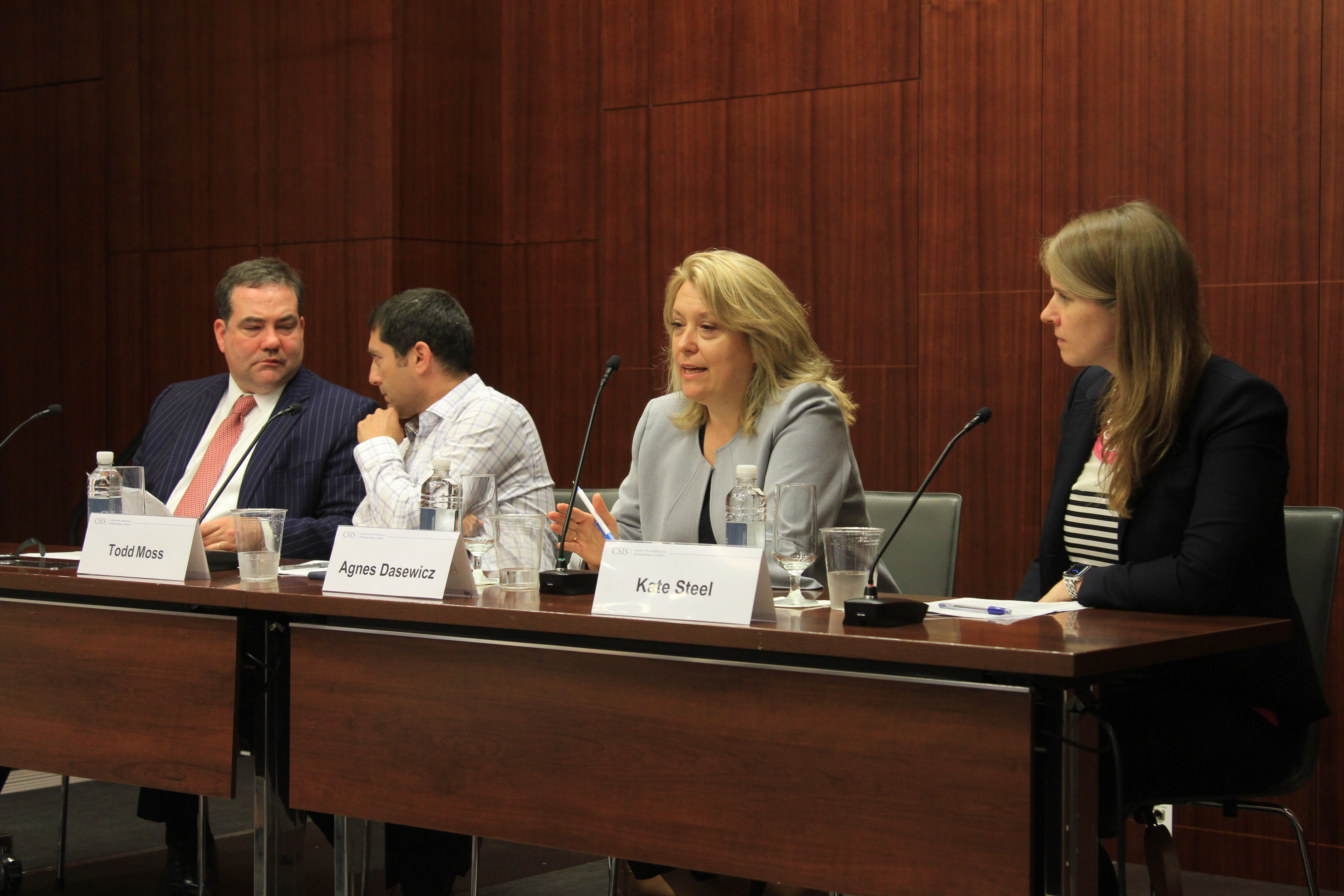 In April 2019, CSIS partnered with the Energy for Growth Hub and convened the
In April 2019, CSIS partnered with the Energy for Growth Hub and convened the 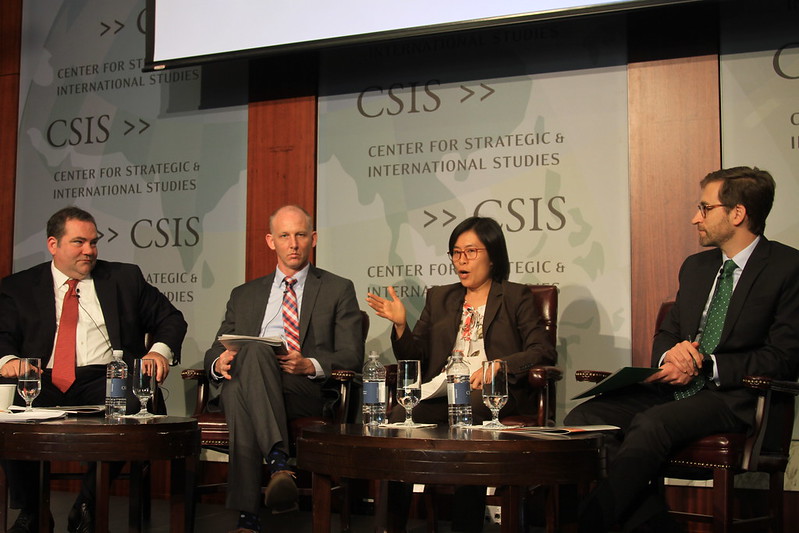 Finally, in the lead-up to the 2019 G20 Summit in Osaka, CSIS partnered with the Ministry of Foreign Affairs of Japan to release a policy brief on “
Finally, in the lead-up to the 2019 G20 Summit in Osaka, CSIS partnered with the Ministry of Foreign Affairs of Japan to release a policy brief on “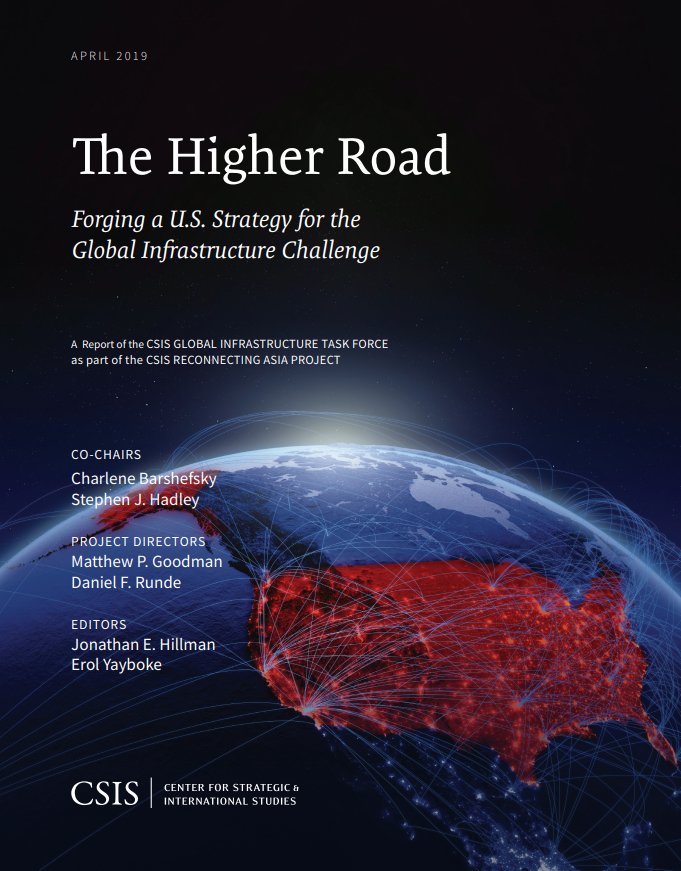 Co-chaired by former U.S. trade representative Charlene Barshefsky and former national security advisor Stephen J. Hadley, CSIS launched the Global Infrastructure Task Force to help forge a bipartisan, public-private consensus on a strategy for U.S. success in today’s global infrastructure build-out. Co-directors CSIS Senior Vice Presidents Matthew P. Goodman and Daniel F. Runde, along with other experts and members of the taskforce,
Co-chaired by former U.S. trade representative Charlene Barshefsky and former national security advisor Stephen J. Hadley, CSIS launched the Global Infrastructure Task Force to help forge a bipartisan, public-private consensus on a strategy for U.S. success in today’s global infrastructure build-out. Co-directors CSIS Senior Vice Presidents Matthew P. Goodman and Daniel F. Runde, along with other experts and members of the taskforce, 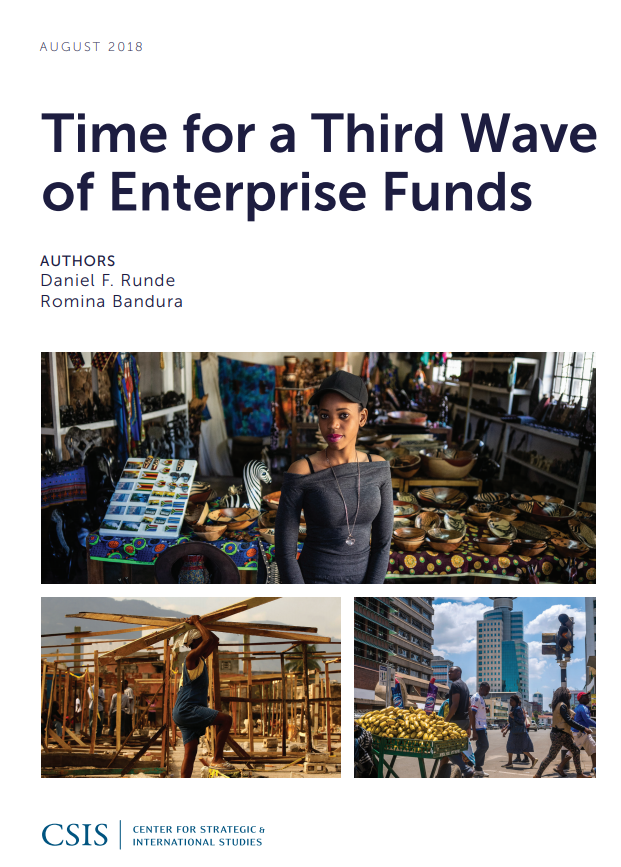 In September 2018, CSIS scholars Daniel Runde and Romina Bandura also released a new report called “
In September 2018, CSIS scholars Daniel Runde and Romina Bandura also released a new report called “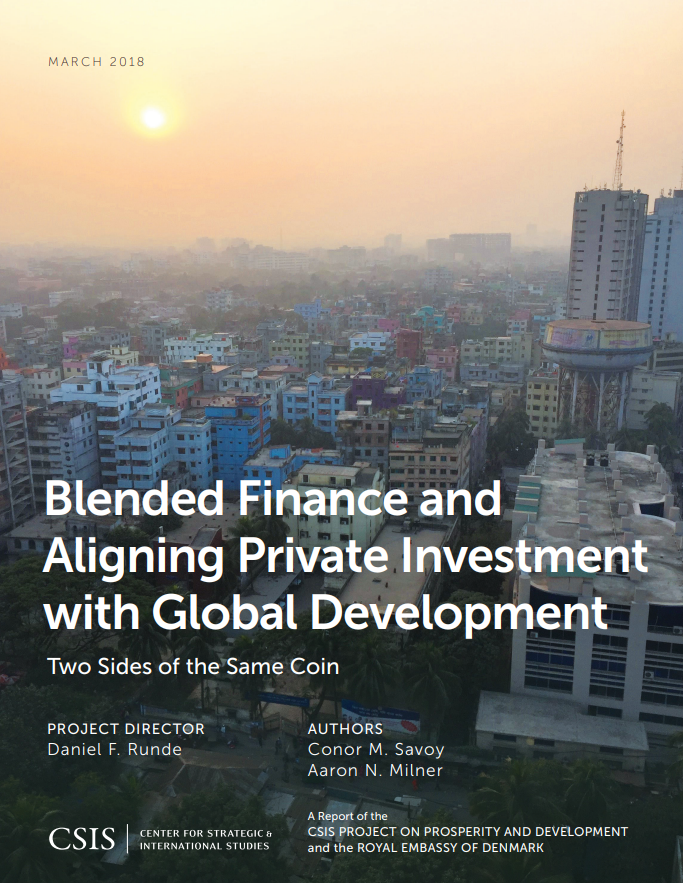 In the March 27, 2018 report “
In the March 27, 2018 report “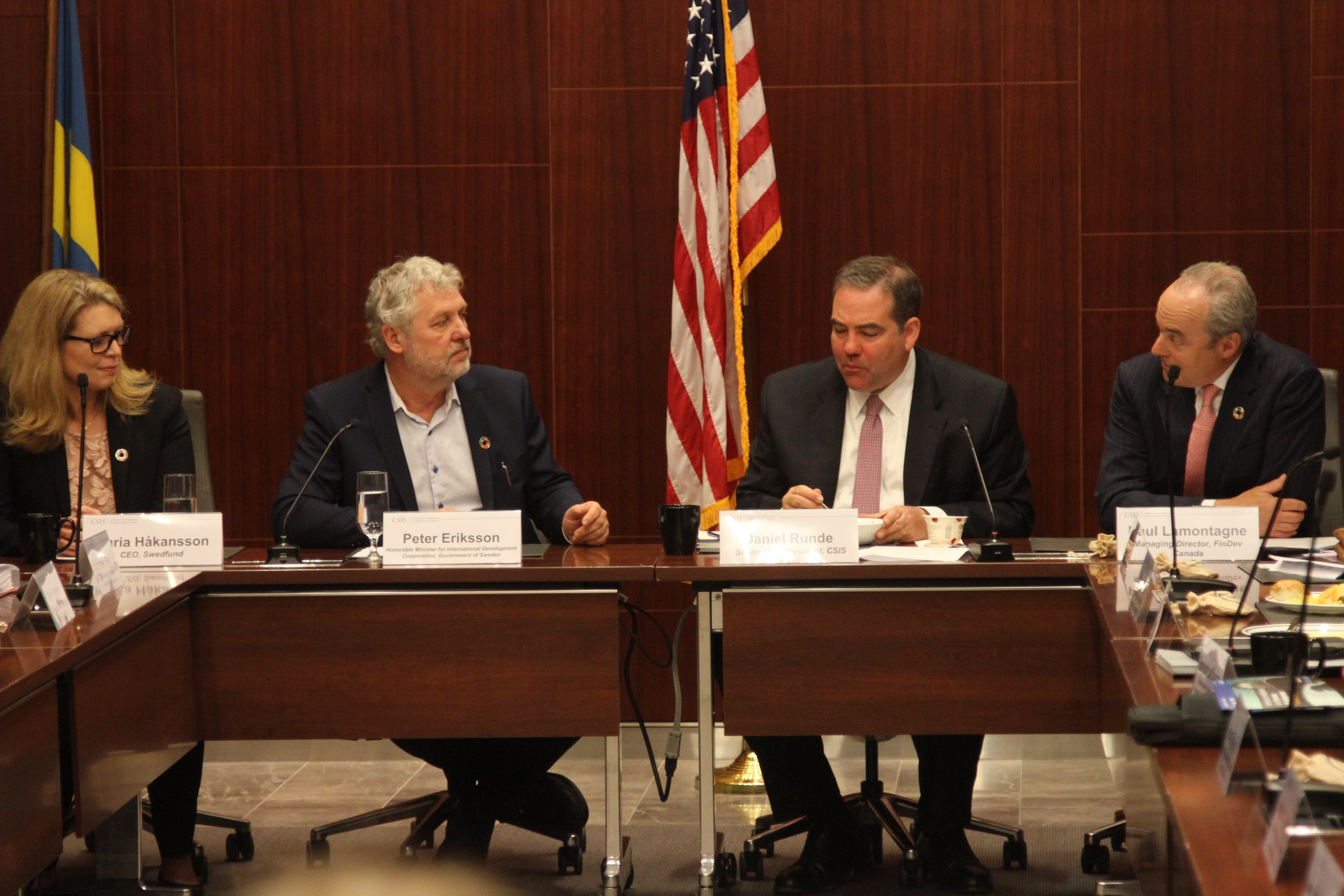 CSIS partnered with FinDev Canada and Swedfund to produce a brief on “
CSIS partnered with FinDev Canada and Swedfund to produce a brief on “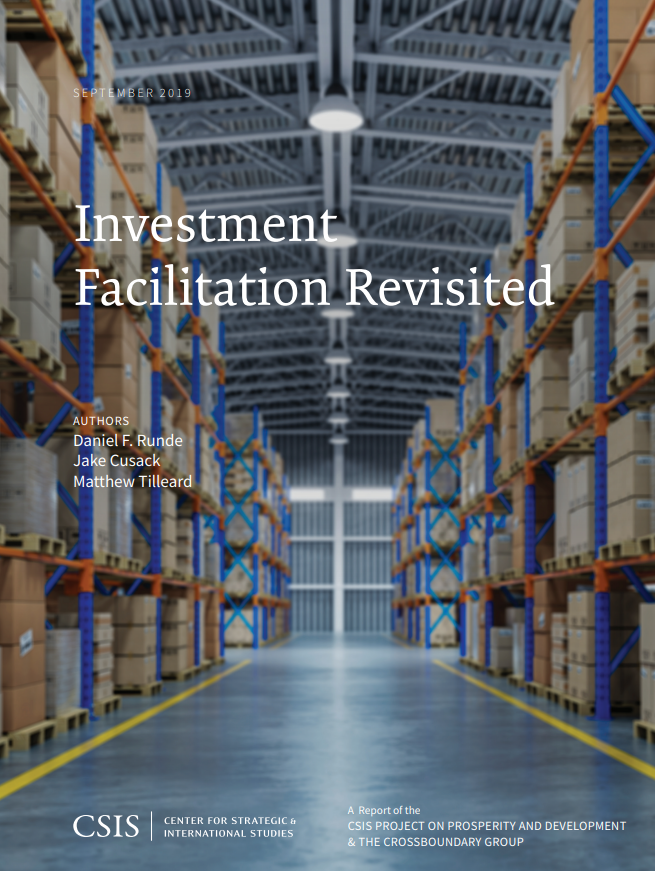 Following up on a 2013 report on investment facilitation, CSIS partnered with CrossBoundary to test and evaluate how the recommendations of the previous report worked in practice in
Following up on a 2013 report on investment facilitation, CSIS partnered with CrossBoundary to test and evaluate how the recommendations of the previous report worked in practice in 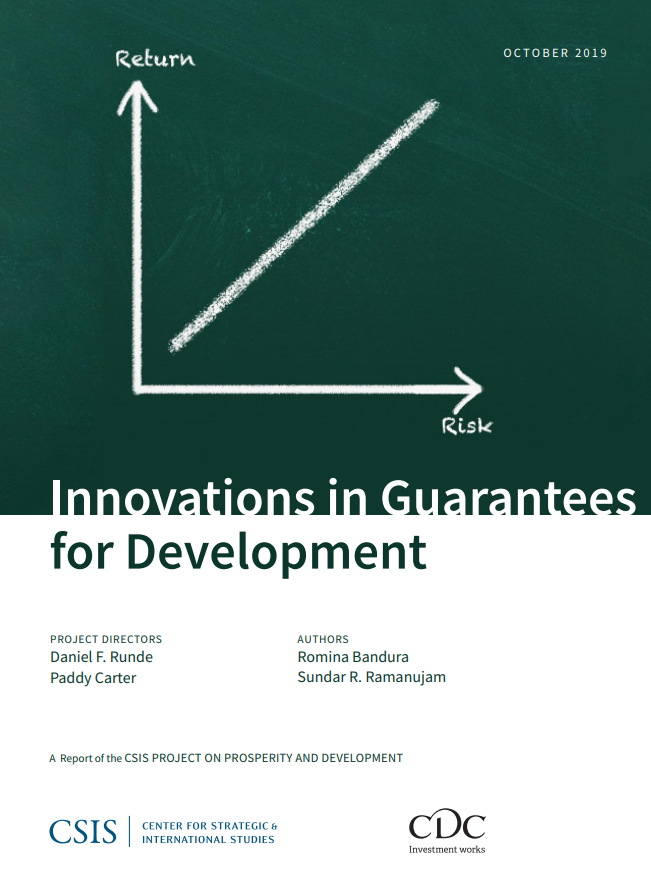 In partnership with the UK-based CDC Group, CSIS conducted a study on innovative uses of financial guarantees to leverage private capital in lower-middle-income and low-income countries.
In partnership with the UK-based CDC Group, CSIS conducted a study on innovative uses of financial guarantees to leverage private capital in lower-middle-income and low-income countries. Finally, in November 2019, CSIS
Finally, in November 2019, CSIS 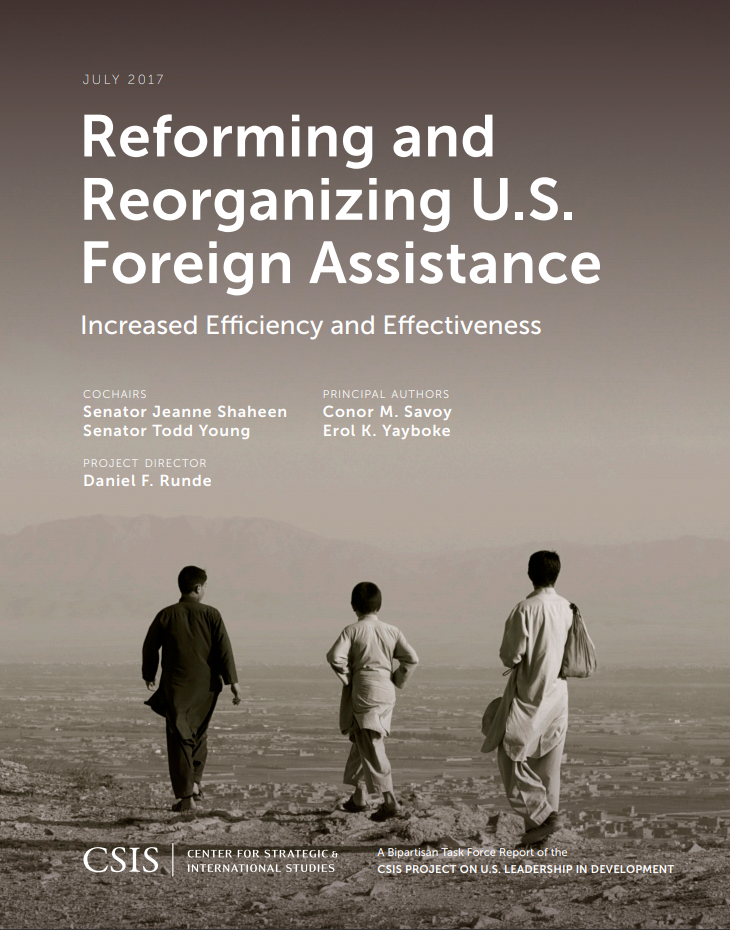 CSIS convened a bipartisan taskforce in 2017 chaired by Senators Jeanne Shaheen and Todd Young on “
CSIS convened a bipartisan taskforce in 2017 chaired by Senators Jeanne Shaheen and Todd Young on “








No comments:
Post a Comment